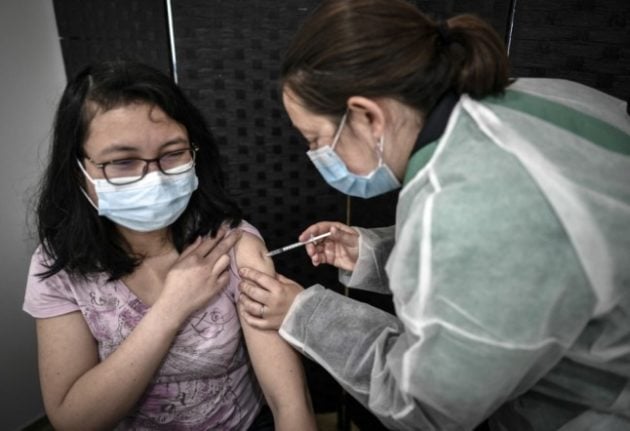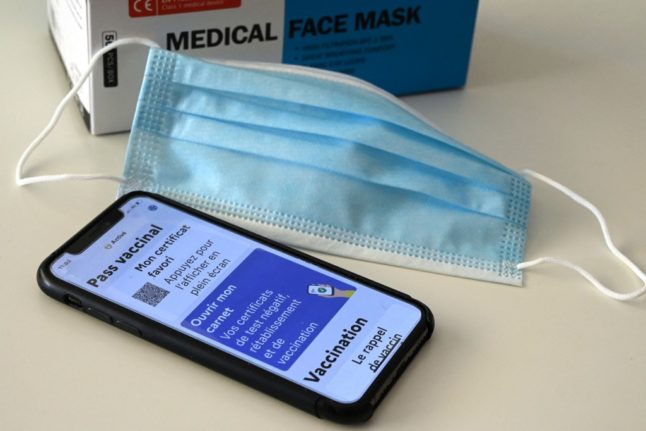“Despite slightly diminished efficacy, the Pfizer vaccine probably protects” against the so-called ‘Indian variant’, according to laboratory test results, said Olivier Schwartz, the institute’s director and co-author of the study that was published on the BioRxiv website ahead of peer review.
The study sampled 28 healthcare workers in the city of Orleans. Sixteen of them had received two doses of the Pfizer vaccine, while 12 had received one dose of the AstraZeneca vaccine.
People who had received two doses of Pfizer saw a three-fold reduction in their antibodies against the Indian variant, B.1.617, according to the study, but were still protected.
READ ALSO: What is the ‘Bordeaux variant’ of Covid and should France be worried?
“The situation was different with the AstraZeneca vaccine, which induced particularly low levels of antibodies neutralising” the Indian variant, the study said.
Patients who had had Covid-19 within the past year and people vaccinated with two doses of Pfizer retained enough antibodies to be protected against the Indian variant, but three to six times less antibodies than against the UK variant, Schwartz said.
The study shows that “this variant has acquired partial resistance to antibodies,” according to Schwartz.
READ ALSO: EXPLAINED: How to book an appointment for the Covid-19 vaccine in France
Since first emerging in late 2019 in China, the SARS-CoV-2 virus that causes Covid-19 has developed several variants, usually named for the places where it first appeared including the so-called South Africa and UK strains.
The variant first detected in India appears to be much more transmissible than earlier variations.
It has now been officially recorded in 53 territories, according to a World Health Organization report.
To try to curb its spread, France, Germany and Austria have re-introduced tighter rules on arrivals from affected countries, including the United Kingdom.
UPDATE: What rules do European countries have in place for travel from the UK?
France has banned all non-essential travel from the UK following the surge in Indian variant coronavirus cases, as this strain now makes up over half of new cases in the UK.
“There is a new situation with the progression of the so-called Indian variant in the United Kingdom,” said government spokesman Gabriel Attal when announcing France’s tightened measures.
“Compelling reasons will be required for non-EU foreign nationals not resident in France joining France from the UK,” added the Foreign Ministry.



 Please whitelist us to continue reading.
Please whitelist us to continue reading.
Member comments